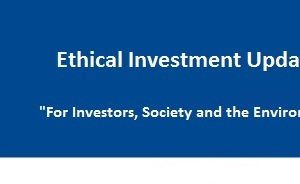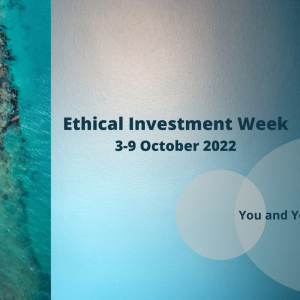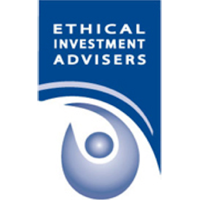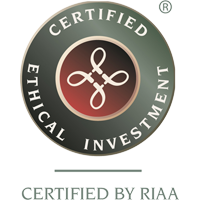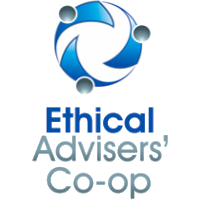Karen 6/18/2018 Ethical investing means business
THE AUSTRALIAN
Ethical investing means business
JAMES KIRBY THE DEAL 12:00AM June 15, 2018
In the context of a royal commission that has hung financial advisers out to dry, it’s a brave operator who actually straps themselves to the mast and publicly identifies as an “ethical financial adviser”. But they’re out there, and they mean business.
In fact there have always been ethical advisers – in spirit if not in name – and they could typically be found advising nonprofits and religious charities.
As Mike Josephson, an adviser at Ethical Investment Services, says: “We’ve been working under this brand name for nearly 30 years. It’s not new … but the elevated interest in the sector is certainly new. Beyond doubt, we as a group are getting a lift from what’s been coming out of the royal commission.”
Josephson is actually a former AMP adviser. He moved to the now beleaguered insurer by way of San Francisco. before settling in Melbourne and changing direction.
Likewise, Karen McLeod, Josephson’s colleague in Brisbane, initially worked at Godfrey Pembroke, an NAB financial planning subsidiary (which is now for sale following the royal commission) before she struck out for the sunnier pastures of ethical investing.
Will Hamilton, a regular contributor to The Australian and number 34 on the list this year, runs independent planner Hamilton Wealth Management. He does not brand himself an ethical adviser, but in common with many of his peers he certainly wants it to be clear he is ethical.
“Our industry is being put under a spotlight and that’s a positive development,” Hamilton says. “It throws up important issues and engenders debate about what the true objectives of the profession should be.”
So what then is an ethical adviser?
Needless to say, the vast majority of financial advisers would claim to be ethical and – in common with any other profession going through a scandalous period – it is clear most advisers have been left to work against the bad reputation that has been forged by a minority.
https://www.theaustralian.com.au/business/the-deal-magazine/ethical-investing/news-story/a501849543c75bfce880e2bbb1e56665 1/8
6/18/2018 Ethical investing means business
Within the profession there has also been a small group working on actively building an ethical framework. In fact they have their own representative body, the appropriately titled Ethical Advisers’ Cooperative.
The vast majority of financial advisers would claim to be ethical and most have been left to work against the bad reputation forged by a minority. However, the umbrella group for the entire sector is the Responsible Investing Association Australasia, which is the peak body for both Australia and New Zealand.
At the website responsibleinvestment.org, the association has built two very useful resources: a list of all the fund managers in the ethical sector, and a list of all financial advisers in Australia who have undertaken a course or receive specific accreditation from the RIAA. The second list has fewer than 100 advisers, a drop in the ocean when you consider there are more than 20,000 across the local market.
Separately, the fund manager Australian Ethical Ltd keeps a list of advisers organised state by state. This list is similar but not identical to the RIAA.
Customers who actively seek out ethical advisers come from all walks of life, though McLeod readily volunteers that her company has a heavy representation among workers in nonprofits such as charities and environmental protection groups. “We also get our fair share of academics,” she says.
More broadly, the customer base of many ethical planners is often not wideeyed earlystage investors, but rather experienced ones who have come to the conclusion that mainstream planners are not representing their values. And those values can be complex – one investor might be procoal but antigambling; another may have no issue with gambling and be passionately anticoal. The definition of ethical investing is thus variable, and there will always be grey areas.
For example, there is a perennial debate around nuclear power and uranium. Some environmentalists see nuclear power as the least worst alternative for industrial energy. At the other end of the spectrum there are those who will oppose electric cars, arguing that they still hook into industrial power and that those power plants will most likely still be sourcing from fossil fuels such as gas or even coal. https://www.theaustralian.com.au/business/the-deal-magazine/ethical-investing/news-story/a501849543c75bfce880e2bbb1e56665 2/8

